The 70s revolutionized what it meant to be a woman on-screen and as a performer, bringing us some of the biggest female stars of the 70s. Out went the sweet pop princesses and wholesome ladies and in came a new wave of rebels who refused to play by the rules. These 70s trailblazers forever changed what was possible for women in entertainment.
Jessica Lange
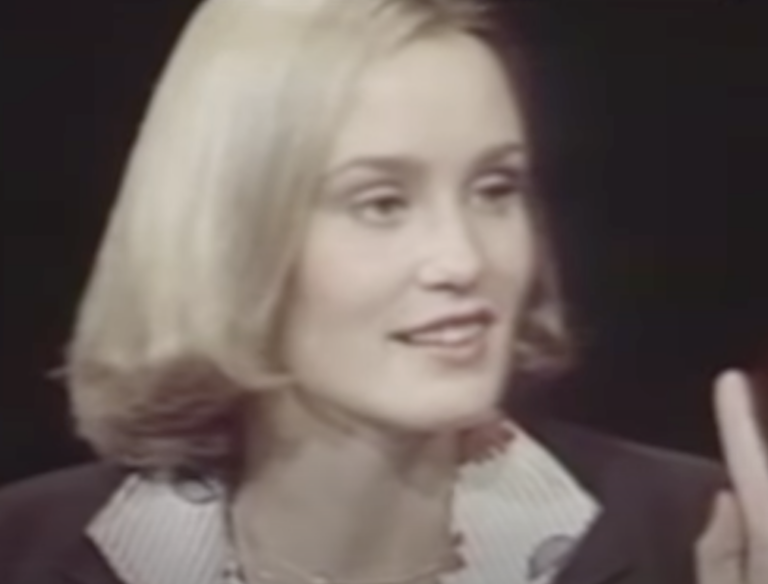
First up on our list of the biggest female stars of the 70s is one of Hollywood’s most captivating actresses: Jessica Lange.
She hit Hollywood like a storm in 1976’s King Kong. Lange quickly proved herself as one of the most serious actresses of her time, snagging two Academy Award nominations in one year for Frances and Tootsie. Later, she continued proving she could do it all—from All That Jazz to dramas like Country.
Interestingly, Lange never took the easy roles, either. She picked parts that made people uncomfortable, played women who weren’t always likeable, and showed Hollywood that actresses could do a lot more than just look pretty on screen. In the end, Lange made our list because she didn’t just act in great movies, she changed what great acting could be for years to come.
Goldie Hawn
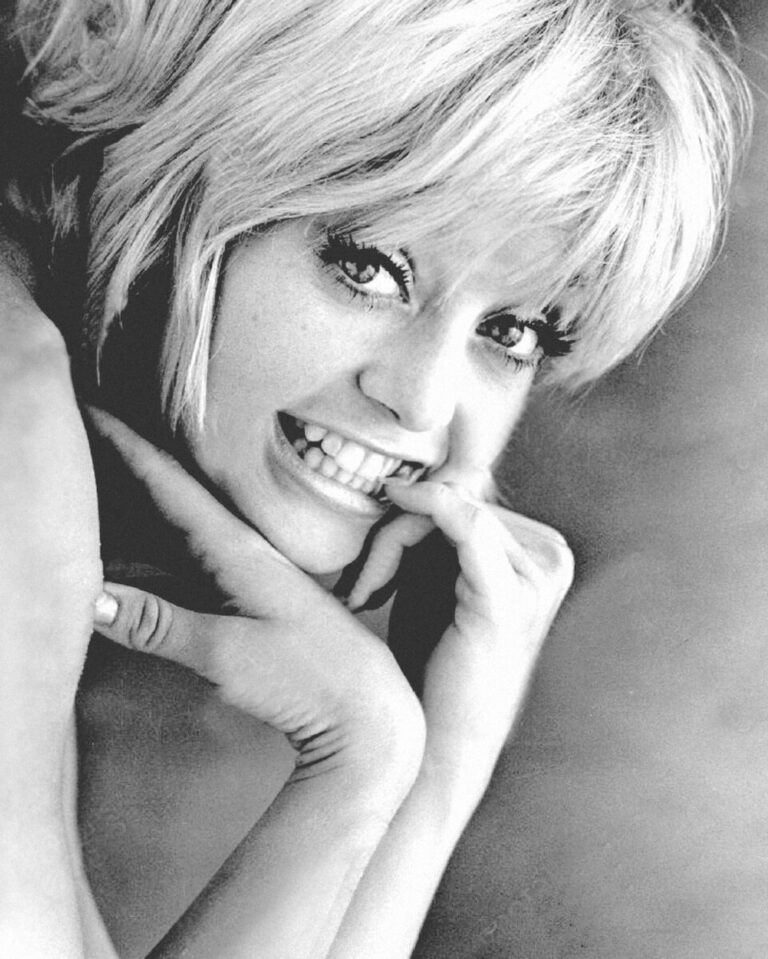
Of course, we had to include Goldie Hawn. She was beautiful, talented, and full of energy. But this beautiful bombshell was way more than just a pretty face. Goldie challenged what the world expected from female actresses at the time, knocking down gender barriers with her groundbreaking roles.
Her big break came in 1969’s Cactus Flower, which won her an Oscar for Best Supporting Actress. Later, in the 1980’s, her role in Private Benjamin really shattered stereotypes. Goldie’s characters had attitude and confidence, never apologizing for being themselves.
Especially during a time before women had equal rights as men in many sectors of life, her roles inspired females of all ages to embrace their individuality and stand their ground.
Dolly Parton
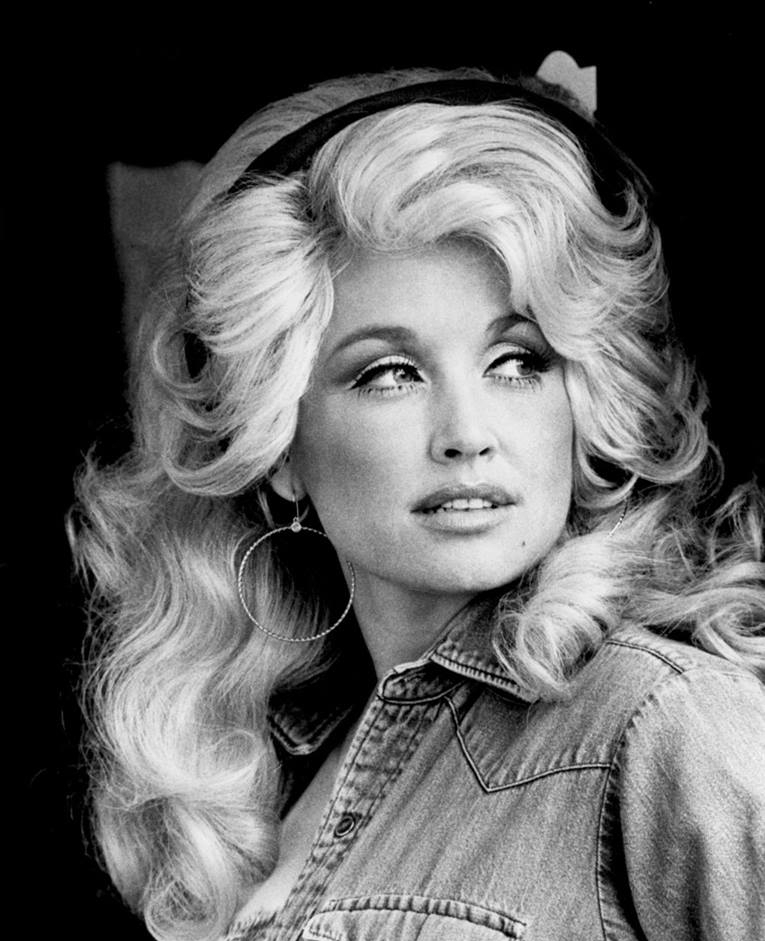
Next, Dolly Parton made her mark on the decade’s music scene, becoming one biggest female stars of the 70s. She started off as a regular on the musical variety show, The Porter Wagoner Show, but it was her solo work that really made her take off. Her hit “Jolene” topped the country and even pop charts, showing just how many people connected with her sound.
What made Parton special was her unique voice and way of telling stories through song. She sang about real stuff, but always with a bit of humor thrown in. Her album Here You Come Again won her first Grammy and proved she could hold her own. In both country and pop genres!
Parton’s big personality and songwriting skills also laid the groundwork for her later endeavors, like theme parks and movies, and earned her a place on our list of the biggest female stars of the 70s.
Also Read: The Best Romance Movies of the 70s
Sissy Spacek
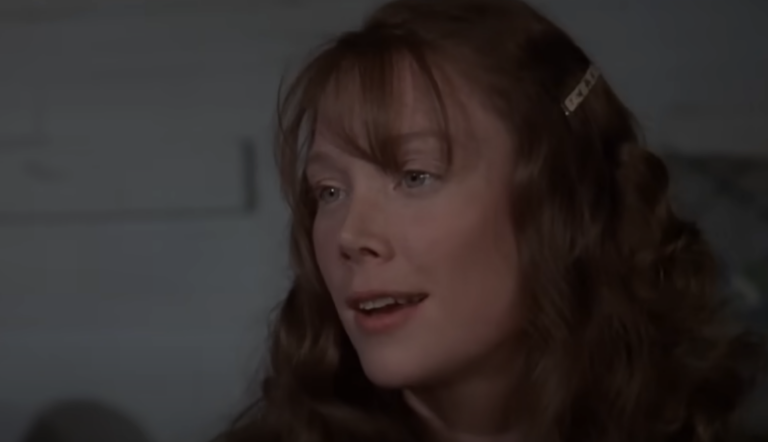
Sissy Spacek was one of the biggest female stars and scream queens of the decade, captivating audiences with her unique look and raw talent. Her large, expressive eyes set her apart from the typical Hollywood glamour of the time.
Her breakthrough role came in Brian De Palma‘s 1976 horror classic Carrie, where she earned an Academy Award nomination, which, for the time, was rare for horror films. But Spacek’s talent went far beyond scream queen status. She brought authenticity to every role, shining in films like 3 Women and Coal Miner’s Daughter. Throughout the decade, her famous blood-soaked scene from Carrie became one of horror’s most iconic moments, still recreated by Halloween costumes today.
Jane Fonda
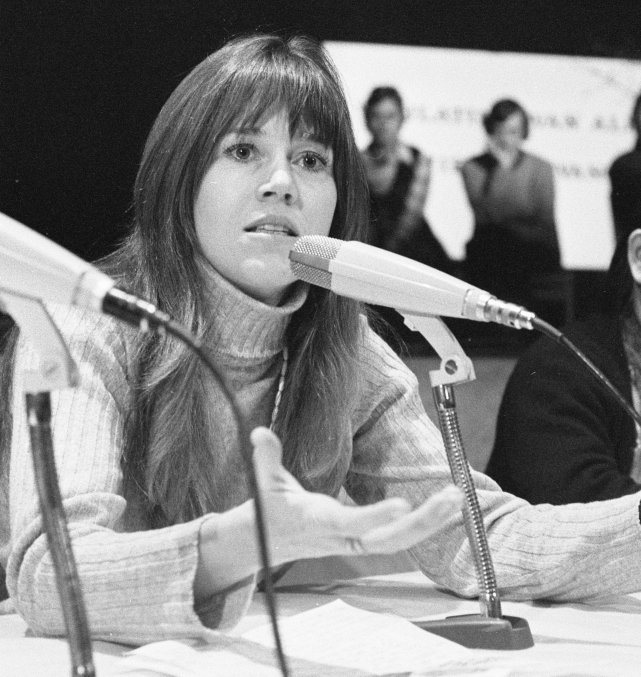
Known for her striking beauty and unwavering, if controversial, convictions, Jane Fonda tackled complex roles that pushed boundaries and sparked conversations in the 70s.
Her performances in films like Klute and Coming Home earned her two Academy Awards, highlighting her versatility and depth as an actress. She brought raw emotion to the screen and captivated audiences.
Beyond her acting, Fonda used her platform and stardom to advocate for social and political causes. She spoke out against the Vietnam War, fought for women’s rights, and raised awareness about environmental issues. Later, in the 1980s, Fonda changed the fitness industry with her wildly popular workout videos, encouraging women to take control of their health.
Even today, Fonda’s influence continues to resonate with modern artists. Singer-songwriter Maggie Rogers, known for her blend of folk and pop music, has cited Fonda as an inspiration. Rogers admires Fonda’s ability to combine art with activism and saw parallels in their shared commitment to environmental and social justice. Today, Jane Fonda continues her acting career and activism well into her 80s.
Related: 7 Biggest Child Stars of the 70s
Jodie Foster
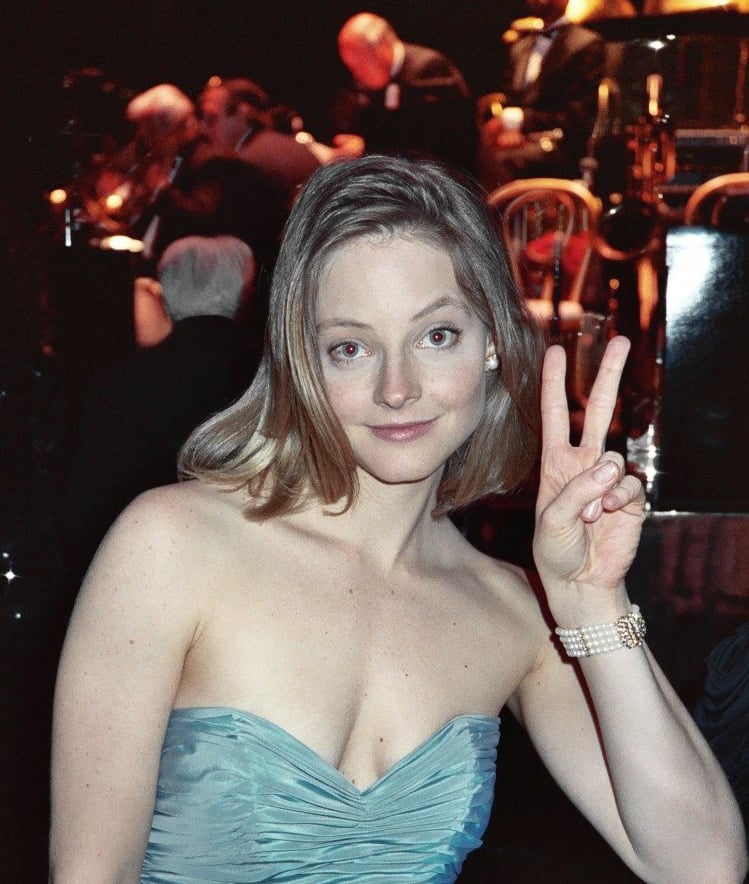
Up next on our list is a child star turned major Hollywood icon: Jodie Foster. Her breakthrough came at the young age of 12. She appeared in Martin Scorsese’s Taxi Driver, earning Foster her first Oscar nomination.
Foster’s career actually began even earlier, appearing in commercials at age three and her first major role in Napoleon and Samantha. Unlike many child stars, Foster also successfully transitioned to adult roles. In the 70s, she also appeared in Freaky Friday and Candleshoe. Later, she won awards for her performances in The Accused and as Clarice Starling in The Silence of the Lambs.
Her journey from child actor to respected female star was a clear example of her talent, earning her a spot on our list.
Stevie Nicks
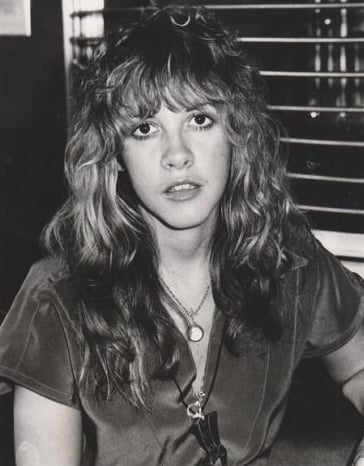
Next, as one of the most iconic female singers of the 70s, Stevie Nicks had to make this list. She rose to fame as a member of Fleetwood Mac.
Her blend of rock and folk, combined with her poetic lyrics, made her one of the decade’s biggest female stars. Nicks sang several hit songs for Fleetwood Mac, including “Dreams,” “Rhiannon,” and one of my mom’s favorites, “Landslide.“
Nicks also launched a successful solo career in 1981 with her debut album Bella Donna. This album featured hits like “Edge of Seventeen” and “Stop Draggin’ My Heart Around,” a duet with Tom Petty. Notably, Nicks’ influence also extended beyond her music, making her a fashion icon too. Her bohemian fashion often featured flowy dresses, shawls, and platform boots, becoming a signature look of the decade.
Sally Field
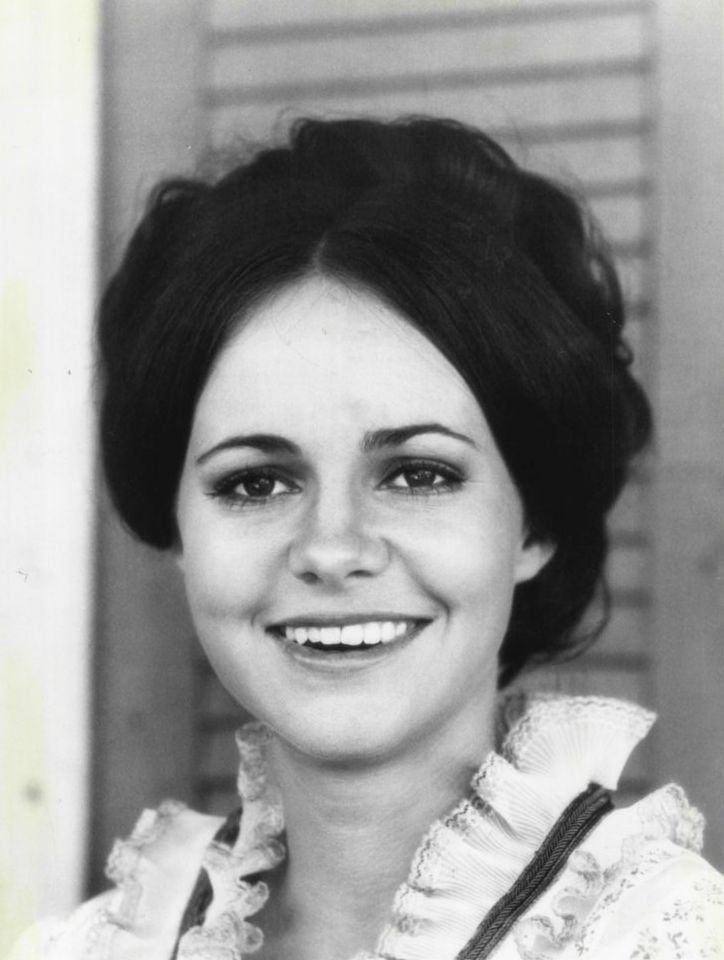
Sally Field was one of the most versatile actresses of the 70s. Her journey began with TV roles in shows like Gidget and The Flying Nun, but Field was determined to break free from her wholesome image.
Her breakthrough came with the 1976 TV movie Sybil, where she played a woman with multiple personality disorder. The emotional performance earned her an Emmy and proved to critics that she could do true dramatic work. Later, Field delivered a powerhouse performance in Norma Rae, playing a factory worker who became a labor union organizer, also earning her an Academy Award for Best Actress.
What set Field apart was her ability to bring authenticity to every role, whether playing a struggling single mother or activist. Her famous Oscar acceptance speech, where she exclaimed,` “You like me, right now, you like me!” revealed the vulnerability beneath her strength.
Raquel Welch

Raquel Welch, known for her long dark hair and beautiful features, was one of the most beautiful actresses of the decade. Although she first caught everyone’s attention in the 1960s, she remained a major star throughout the 70s, too.
One of Welch’s most famous moments was in the movie One Million Years B.C., where she wore a fur bikini. This image became an iconic poster that many people remember even today. Welch continued acting in many different types of movies, proving she was more than just a pretty face.
What set Welch apart was her ability to combine beauty with a strong, confident personality. She played tough, independent characters. Even now, Raquel Welch is remembered as one of the greatest beauties and biggest female stars of the 70s.
Linda Ronstadt
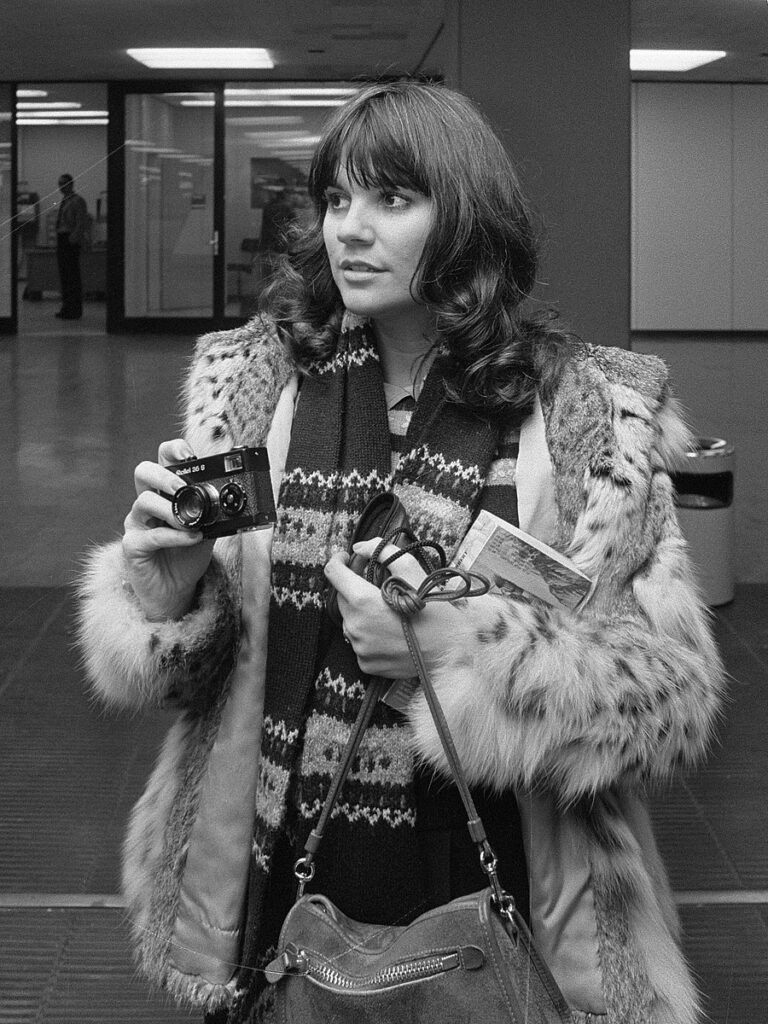
Another one of the biggest female stars of the 70s was Linda Ronstadt. Her powerful voice adorned the decade with country-rock hits. Her natural beauty also helped define a new kind of female performer who didn’t need elaborate costumes or makeup to get attention.
As the 70s continued, Ronstadt’s albums Heart Like a Wheel and Simple Dreams further added to her success. She dominated both the stage and the charts with a confidence that was rare for female performers of the time. Her version of “You’re No Good” became an anthem for the heartbroken.
As a result, her voice and spirit inspired countless future female artists, proving that women could be both commercially successful and artistically uncompromising in the music industry.
Olivia Newton-John

Next, Olivia Newton-John made major contributions to the 70s pop scene with her sweet voice and girl-next-door charm. She kicked off the decade with country-style hits like “Let Me Be There” and “I Honestly Love You,” winning Grammy Awards and winning over American audiences.
Later, Newton-John’s role as Sandy in the 1978 blockbuster musical Grease catapulted her to stardom. The movie’s soundtrack became a global phenomenon, with Newton-John’s performances of “Hopelessly Devoted to You” and “You’re the One That I Want” topping charts worldwide.
Her transformation from wholesome country-pop singer to rock chick in Grease highlighted her versatility, earning her spot on our list of female stars of the 70s, and setting the stage for her continued success in the 80s.
Morgan Fairchild
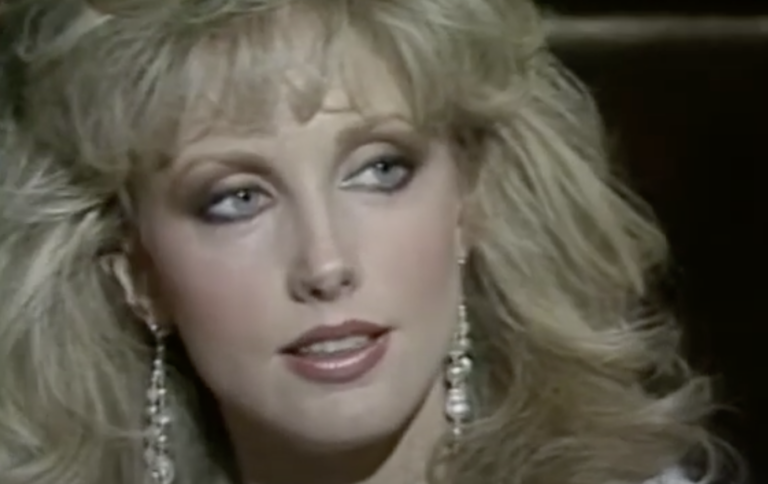
Morgan Fairchild dominated the television landscape of the 70s, bringing glamour and sophistication to the screen. She first caught viewers’ attention on the soap opera Search for Tomorrow before becoming one of TV’s most recognizable faces. Her platinum blonde hair and wit made her the perfect choice for roles as a sophisticated and ambitious woman.
Fairchild played dramatic and comedic roles unlike many of her contemporaries, proving she was equally comfortable in both genres. She became particularly known for playing elegant villainesses, bringing depth to what could have been one-dimensional characters. Her versatility led to starring roles in 80s hits like Flamingo Road and Falcon Crest. Later, she also made memorable guest appearances on shows like Friends and Murphy Brown.
Faye Dunaway

Another one of the biggest female stars of the 70s was Faye Dunaway. This fierce and talented actress captivated audiences with her striking beauty and intensity on screen. Dunaway’s career soared in the 70s, building on her breakout role in 1967’s Bonnie and Clyde.
She kicked off the decade with a bang, starring in the thriller Little Big Man with Dustin Hoffman. But it was her role as the ruthless television executive Diana Christensen in Network that highlighted her range as an actress. Dunaway’s performance earned her an Academy Award for Best Actress. Later, she chilled audiences in Roman Polanski’s Chinatown. Her ability to take on and portray morally ambiguous characters set her apart from her peers.
Dunaway’s off-screen persona matched her on-screen intensity. Sometimes, her outspoken nature led to clashes with directors and co-stars, but it also helped pave the way for future actresses to demand more from the industry.
As the 70s drew to a close, Dunaway continued to push boundaries. Her portrayal of Joan Crawford in Mommie Dearest remains a cult classic. Faye Dunaway’s fierce talent and dedication to her craft inspired generations of actresses following the 70s.
Diane Keaton

Next, Diane Keaton established herself in Hollywood in the 70s, quickly proving she was a force to be reckoned with. Her breakthrough came with her role as Kay Adams in Francis Ford Coppola’s The Godfather. Later, she held her own alongside stars like Marlon Brando and Al Pacino, showcasing her ability to deliver powerful performances in dramatic roles.
However, it was her collaborations with Woody Allen that truly cemented her status as a star. In films like Sleeper and Love and Death, Keaton proved that she had a natural flair for comedy. Her most memorable role came in 1977’s Annie Hall, which earned her an Academy Award for Best Actress.
Additionally, her androgynous fashion choices, featuring menswear-inspired outfits, influenced fashion trends both on and off the screen, inspiring people to dress however they chose. This distinctive style, combined with her range as an actress, helped redefine what it meant to be a leading lady. Even today, Diane Keaton is one of the biggest female stars of the 70s and beyond.
Barbra Streisand
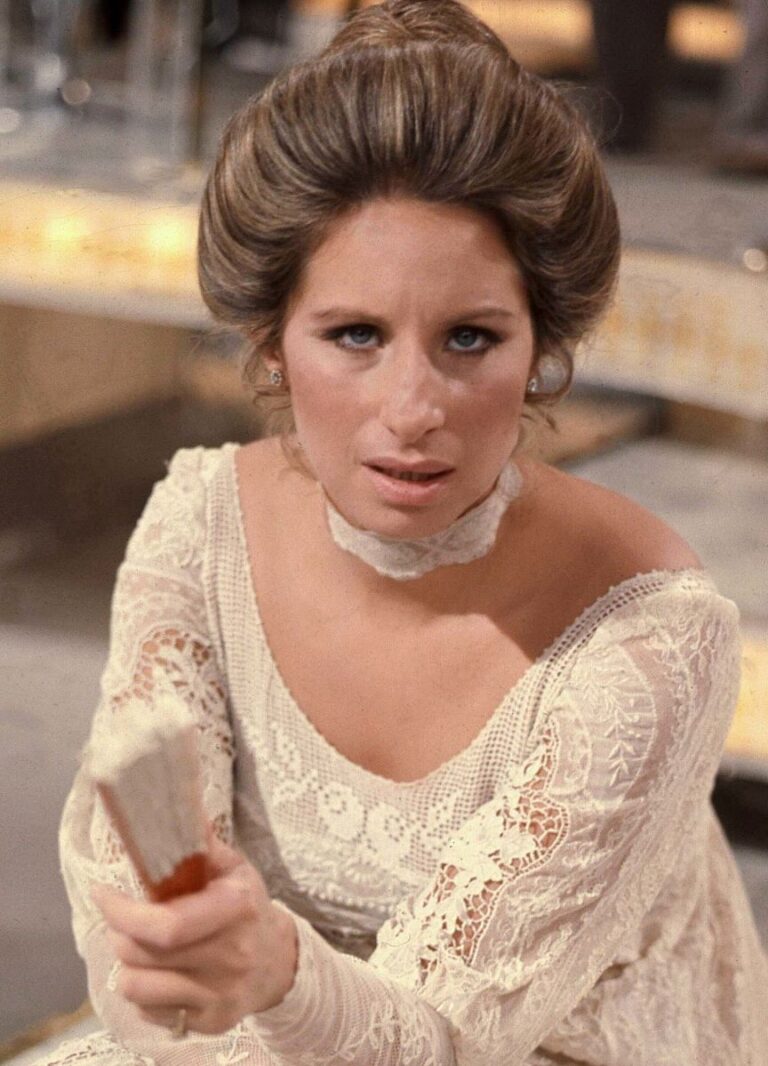
Barbra Streisand truly showed Hollywood what women could do. This New York girl didn’t just act – she sang, directed, and made her own movies, completely rewriting what it meant to be a star.
Streisand kicked off the decade riding high from her huge 1968 hit Funny Girl. She played Fanny Brice, a role that won her an Oscar and showed the world her exceptional talent. Later, Streisand continued to impress audiences and made people laugh in The Owl and the Pussycat and What’s Up, Doc? She also took on serious roles, like in The Way We Were, which got her another Oscar nomination.
After appearing in many productions, Streisand wanted more control over her own work, so she directed her own movie, Yentl (where she also acted and sang). This was a big deal for the time because few women directed movies back then. Streisand also fought for what she believed in. She wanted equal pay and the power to make decisions about her films. She also showed that you don’t need to look like everyone else to be a star. Her unique nose became iconic!
Overall, Barbra Streisand truly changed the role of women in Hollywood. She still inspires actresses today to follow their dreams and stick to what they believe in.
Lynda Carter
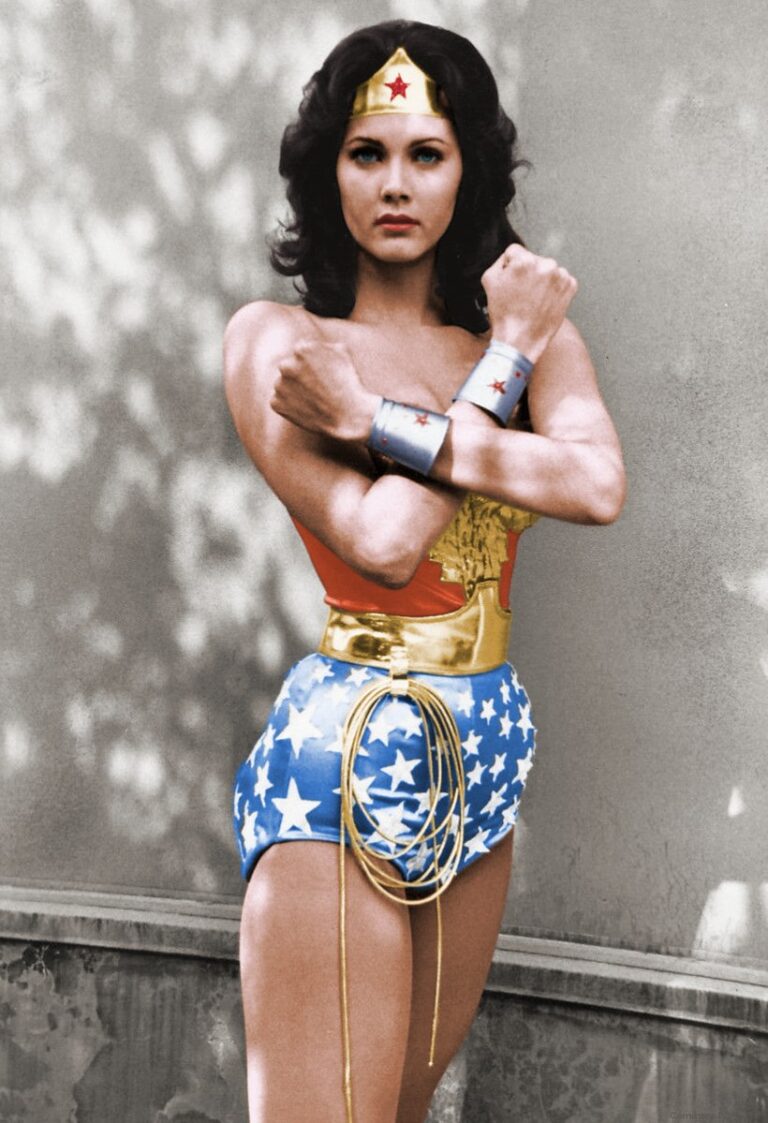
Up next on our list, Lynda Carter skyrocketed to fame in the 70s with her portrayal of Wonder Woman. Born in Arizona in 1951, Carter started as a singer and beauty queen. As the titular character Wonder Woman in 1974, she brought strength and intelligence to the screen, challenging stereotypes about women in action roles.
Like many of these other female stars of the 70s, Carter’s impact went beyond the screen. She became a symbol of female empowerment, advocating for women’s rights and LGBTQ+ issues. Beyond her work in Wonder Woman, Carter also appeared in various TV projects and pursued her music career. She released albums and performed in nightclubs and on television, showcasing her versatility as an entertainer.
Today, Carter’s legacy is defined by her portrayal of Wonder Woman and continues to influence modern adaptations and inspire new generations.
Also Read: The Biggest Male Stars of the 70s
Carrie Fisher
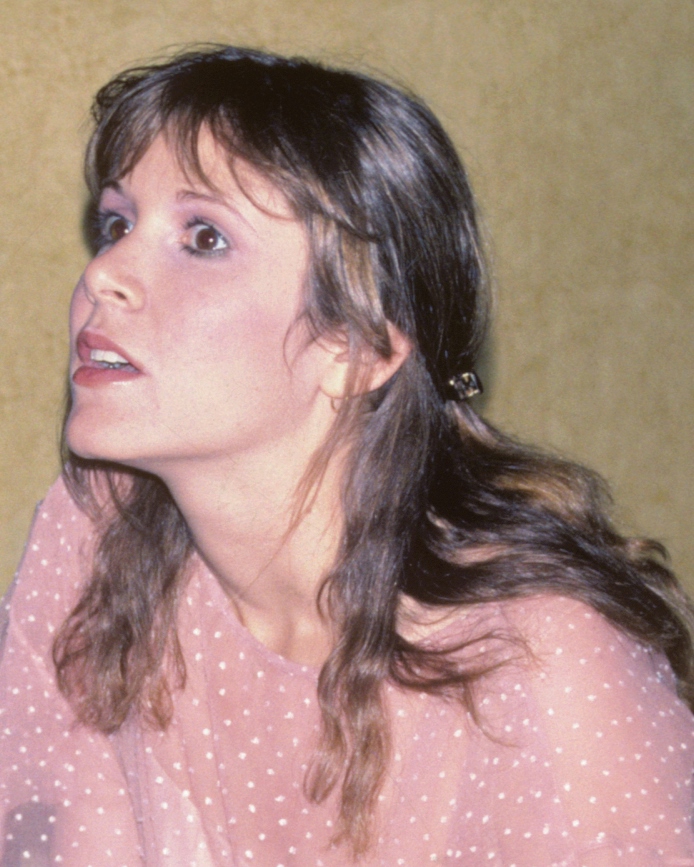
If you’re a Star Wars fan, when you think of Carrie Fisher, Princess Leia probably comes to mind first. But her impact on Hollywood icon was so much more than her well-known Star Wars role. Fisher began getting recognized in 1977. Her wit, talent, and honesty changed what it meant to be an star in the 70s and beyond.
Beyond Star Wars, she shined in films like When Harry Met Sally and Hannah and Her Sisters. Fisher’s real revolution came off-screen. She openly discussed her struggles with bipolar disorder and addiction, breaking down mental health stigmas. As a writer, Fisher wrote novels such as her semi-autobiography Postcards from the Edge, which later became a hit movie. This showcased her talent for turning personal pain into relatable art.
Her legacy extended far beyond Princess Leia, inspiring countless generations, even Gen Z, with her talent, honesty, and resilience, earning the final spot on our list of female stars of the 70s.
More About:Celebrity






